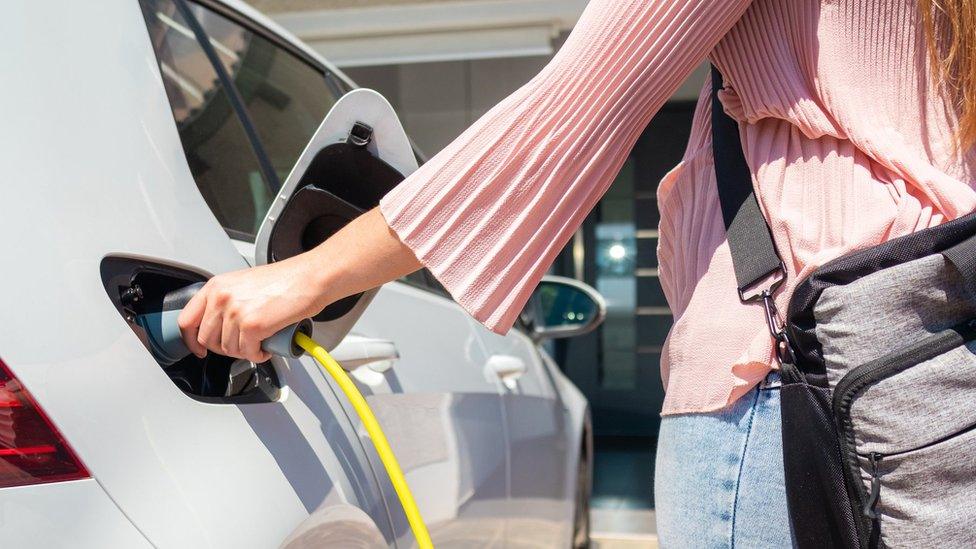How pop band A-ha inspired Norway's electric car revolution
- Published
A-ha's Morten Harket tells BBC Disclosure he just did what was necessary
Norway is miles ahead of the UK when it comes to electric cars and much of its early lead is thanks to an unlikely collaboration between environmental activists and the pop group A-ha.
Back in the 1980s, two leading lights in the Nordic environmental movement were pushing for electric vehicle (EV) technology but it just wasn't being noticed.
But then they recruited the country's biggest pop group to help push the issue into the mainstream.
A-ha were one of the most popular bands in the world after international hits such as Take on Me and the Sun Always Shines on TV.
They even recorded the theme tune to the 1987 James Bond movie The Living Daylights.
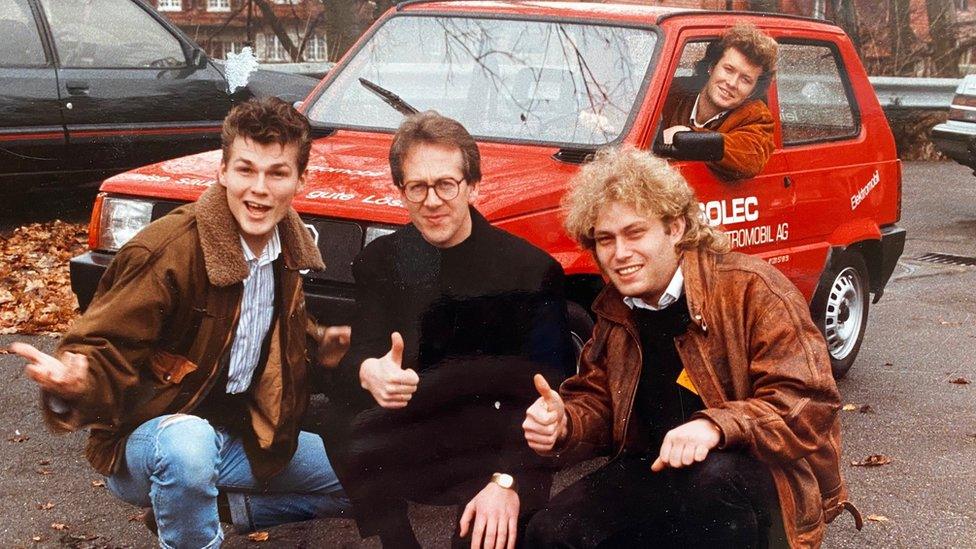
THEN: Morten Harket (left) and Magne Furuholmen from A-ha with Prof Rostvik (second left) and Frederic Hauge (right)
Together, the campaigners and the group went to Bern in Switzerland to attend the Tour de Sol exhibition in 1989.
Here they saw a Fiat Panda which had been converted from petrol to electricity.
They imported a similar car into Norway and used the first modern-day EV on the country's roads to launch a campaign of civil disobedience, making a point about how it needed to embrace an alternative to polluting fossil fuel vehicles.
They racked up fines as they drove the car through toll booths, parked illegally and refused to pay vehicle taxes, arguing that this new form of sustainable transport should be free of these levies in order to make it more attractive.
A-ha's lead singer Morten Harket told BBC Disclosure: "I didn't feel like I was entering into the role of a rebel really. I realised that that's what it was but it was just necessary.
"It was what we needed to do. And it just made every sense, you know?"
The Fiat Panda's rear seats had been removed to create enough space to store the array of batteries it needed to power it but its range was limited to just 28 miles and it took 48 hours to recharge.
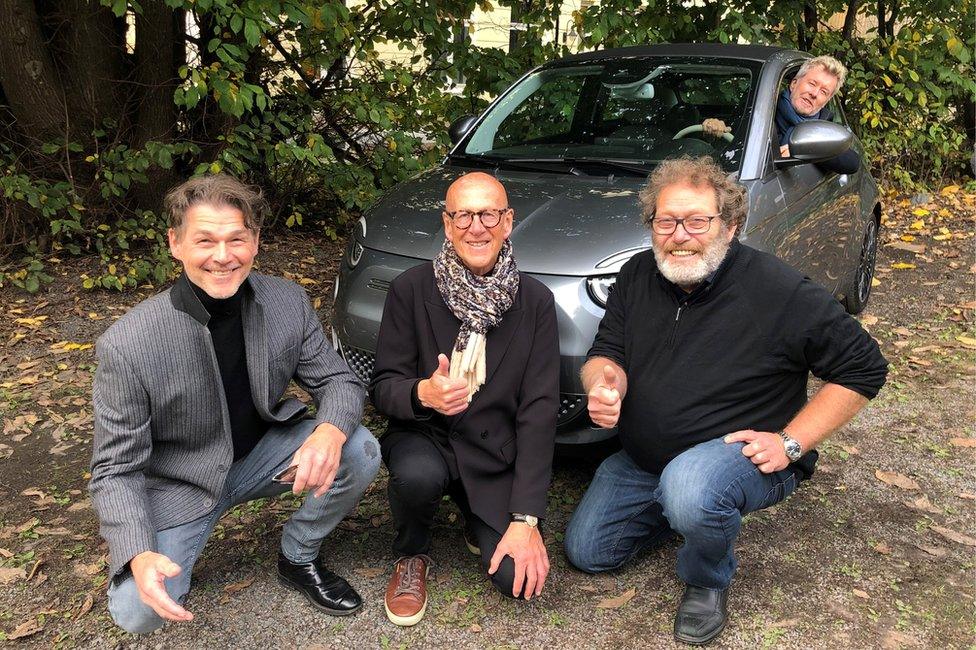
NOW: Morten and Magne from A-ha recreate their 1989 photo for the BBC Disclosure programme, with Prof Rostvik and Frederic Hauge
The idea was the brainchild of Prof Harald N. Rostvik, from the University of Stavanger, who said that at the time people were just laughing at him.
He said: "It was difficult even to communicate what we were talking about because there was not a word like 'sustainability'.
"The idea was to embarrass the government to the extent that only a year after we first drove the car they started implementing the world's best incentives, that we had demanded."
The incentives included allowing EVs to drive in bus lanes, free parking, free ferry travel and zero tax.
Frederic Hauge, founder of the environmental charity Bellona Foundation, said: "Before we did this with importing the electric car together, it was only focusing on the problems.
"This was one of the first topics very focused on the solution.
"It took a year, to pave the road with this little Fiat Panda for the regulations in Norway."
In fact, the campaign went on for about seven years until all the incentives were adopted.
The car was impounded by the government and bought back by supporters at least a dozen times.
But they feel it was important that Norway led the way in decarbonising travel.
Since the mid-1970s Norway has become one of the richest oil producing nations in the world.
The country has a sovereign wealth fund worth almost £1trillion built up from the proceeds of its oilfields to act as a "pension fund" for when it runs out.
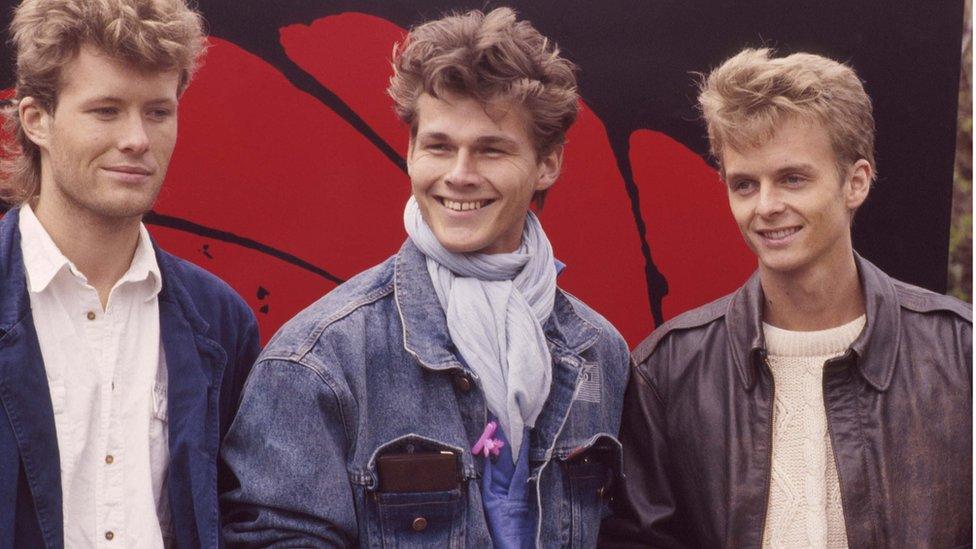
Left to right: Mags Furuholmen, Morten Harket, Pal Waaktaar
Fellow A-ha member Magne Furuholmen said: "Our hands are black from the oil that we got to rich off.
"I think we carry a certain responsibility of being in front, leading the way, for that reason.
"That that little car paved the way for free parking in the city for electric cars with charging stations, and no paying at the toll booth."
Prof Rostvik said Norway was now a different place.
There are now more than half a million EVs in the country which has a population of just 5.4 million.
Scotland, a country of the same size, has about 50,000 EVs, one 10th the number.
In the first half of 2022, 78% of new car sales in Norway were pure electric.
The country intends to ban the sale of new petrol and diesel cars by 2025 which is five years ahead of the UK.
And they are optimistic about the future.
Prof Rostvik said: "Now, 33 years later, we are the grown-ups, and we have kids, all of us, and we have a responsibility to our own families, and to our own nation, and to the global community."
Harket is also optimistic about the future.
"The world only looks the way it does today because we keep it that way," he said.
"Because the upkeep of how we do things, how we go about things, it can change very fast if we choose to change."
- Published25 May 2019
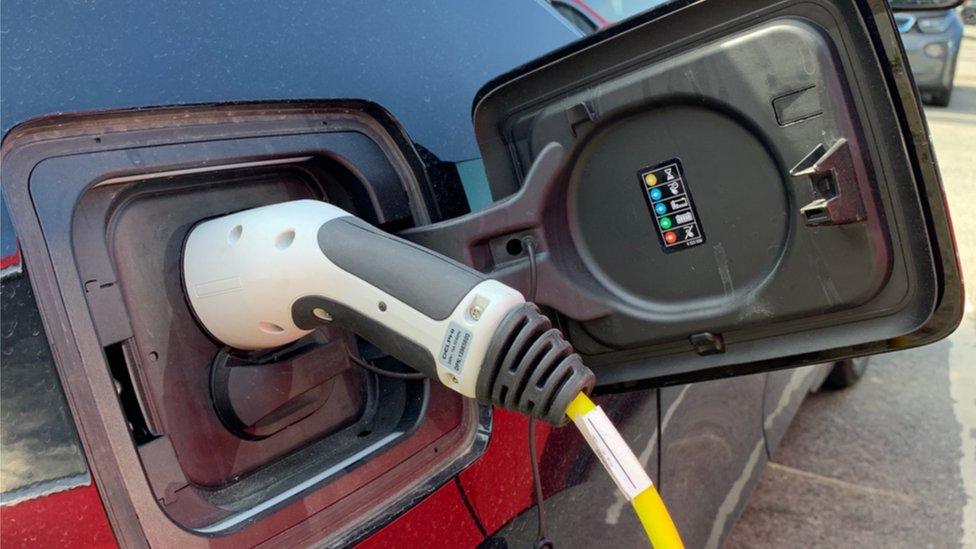
- Published17 May 2022
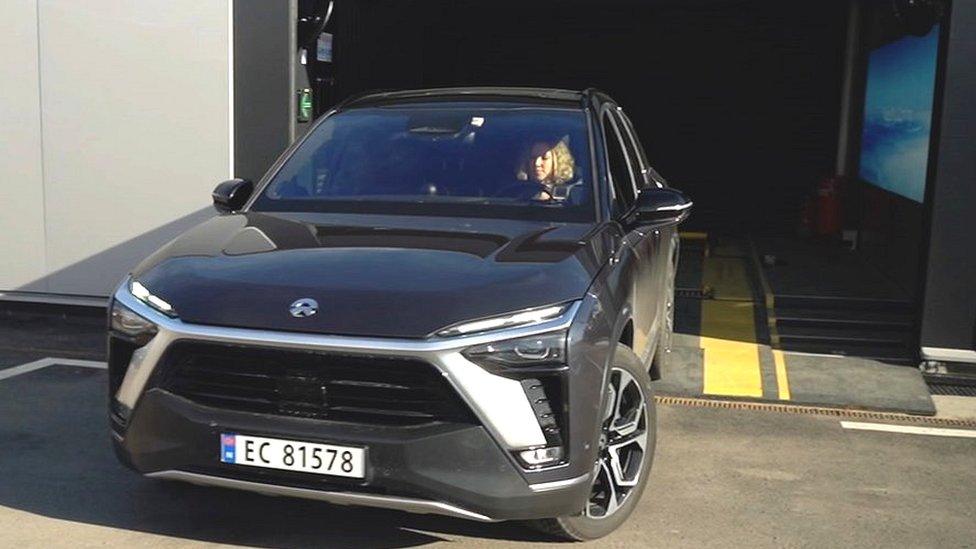
- Published26 March 2022
